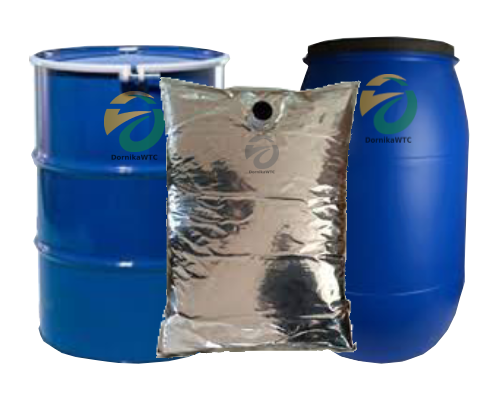Aseptic paste (aseptic tomato paste)
Storing many foods in the open environment leads to their spoiling and contamination. These pollutions, corruption and mold have many risks for human health. From the past until now, many methods have been used for long-term storage of food products. Such as salting, smoking, drying, and finally using various packaging methods, some of which have adverse effects on human health. Especially, some of today’s packaging uses preservatives, which is one of the most harmful methods for human health. Among the suitable methods for improving food preservation are various methods of food pasteurization and sterilization. After this stage, the packaging method is the most important factor in food preservation. In the following, we will introduce the aseptic packaging and storage method and the benefits of aseptic paste.

One of the methods of selling food products is the method of selling in bulk to producers of by-products. For example, the tomato paste product produced by tomato paste factories is offered in the following ways. Packaging in the form of cans, glass and sachets in different weights. Bulk supply for producers of by-products (such as tomato sauce) or major users of these products. In the production of homemade paste, natural preservatives such as salt are used with a higher percentage. But in the production of industrial paste, using hygienic and sterilized methods, the product is produced with a standard amount of salt and supplied in a variety of hygienic packaging. The method of sending bulk according to the conditions of packaging has special conditions for storage in all stages after production; Storage at the origin, sending, and storage at the destination. Cold storage at the origin and destination and time limit for sending without cold storage and sometimes the need to use cold storage equipment during the shipping phase.

In aseptic packaging, the sterilized tomato paste product is imported directly from the production line into the multi-layer aseptic sterilized packaging, which is located in plastic or metal barrels. With this method, the durability of the product is guaranteed without the need for any kind of preservative. Especially unlike sending tomato paste in bulk, there is no need for cold storage in any of the stages of storage at the origin and destination, especially along the way.
Sterilization of aseptic tomato paste product. In three stages of production, the product is sterilized and packaged, and finally, sterilization is applied in the packaging process. In aseptic packaging, in addition to the general characteristics of the product, the taste and color and the quality of the composition of micronutrients such as vitamins and lycopene are well preserved. At the same time, this packaging protects the food product from all kinds of environmental pollution such as dust, moisture, insects and external factors, even in open space or public warehouses. Regarding the most important properties of aseptic paste, we can mention the purity and high concentration of this product and the absence of natural and artificial preservatives.

Due to the high purity of this product, the quality of the product produced from it will be very high. The brix of the antiseptic paste is 36-38. Brix is the concentration and hardness percentage of the paste. Among the uses of aseptic paste, it is possible to produce paste in the usual packaging of cans, glass and sachets for export purposes by reducing the concentration of the product to Brix 26-27 and below, as well as the production of various products based on tomato paste by reducing the concentration and combining with Other additives mentioned in the production process. Tomato paste and its derivatives are high quality products with high potential for export to many countries. The aseptic packaging method is the best method for the major export of tomato paste by reducing costs and the possibility of sending the product by time-consuming methods (such as sea shipping) and long distances. Naturally, for these reasons, septic paste is also very popular among its importers. Darnika International Trade produces paste products made from fresh, healthy, high-quality, hand-picked tomatoes with the most up-to-date production lines based on domestic and international production standards in aseptic packaging with metal and plastic barrels in concentrations of 36-38 , 31-33 and 28-30 depending on the customer’s needs. By participating in production and creating a supply chain, we have provided the conditions for the supply of quality products and competitive prices.
